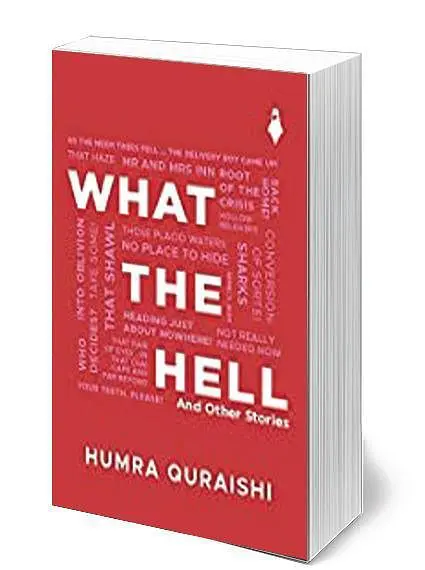Express News Service
Humra Quraishi is an emotional writer whose heart belongs to all those who suffer. In her fiction as well as her nonfiction works, she closely follows people, plot, cities and characters with a sensitivity that borders on the painful. Always alert to the reality of displacement, Quraishi picks up the traumatised and narrates their tales with empathy.
Her latest collection of short fiction, What the Hell And Other Stories, published by Pepperscript, is no different. Here too the wails of the dispossessed echo throughout the narrative. Though most of the 30 tales depict the quiet despair of women—who have lost their homes, children, village, sanity—many give voice to the men too who are trying to survive these iffy times.
Quraishi’s prose, both in the telling and the talks between the characters, is kept to the bare minimum—as if the universal language of tragedy has its own grammar. ‘He’s here or where?’ asks someone. ‘Something or everything bizarre,’ finds a child in ‘Mr and Mrs Inn’, the first story in the collection.
There is a morbidity infusing every word, as if growing up into adulthood is not the coveted passage of time it used to be. The turmoil in Kashmir, caste issues, poverty and ghetto violence come together in a mosaic of intensities.
A rare story, like ‘Your Teeth, Please’, where a dentist spells doom for someone suffering toothache, begins with a touch of humour, but Afghan refugees soon bring the focus sharply back to the book’s theme of temporary addresses. When hope comes in, it is more a fleeting visit.
In ‘Why Not a Full-Fledged One?’ she writes: ‘He’d clasped my hands. Strangely, I’d begun to reciprocate. I’d begun to feel happy. For his clasp didn’t relay lust or love. Just support. Perhaps the emotional support I’d been craving all these years. Never finding it. Not even in that marriage that had throttled my urges, killed those emotions.’ Closures, though, are never complete, never bringing satiety with them. Neither in relationships nor in the sense of belonging.
An artist in the plane, mangoes that mysteriously go missing, the Alzheimer’s patient who is picked up for interrogation… No one has it easy. Every moment carries its own menace, sometimes forcefully, sometimes subtly.
In the dystopian present, old men and women, young children and strangers on the run, they must all escape but there is nowhere they can hide. In a harrowing ride on the road, passengers experience naked fear. There is the lack of words, an appalling silence, a realisation that everyone is on their own, unsafe and unprotected in a world that is whimsical in its brutality. As Quraishi writes: ‘Unmoving the bus. Moving the stillness.’







